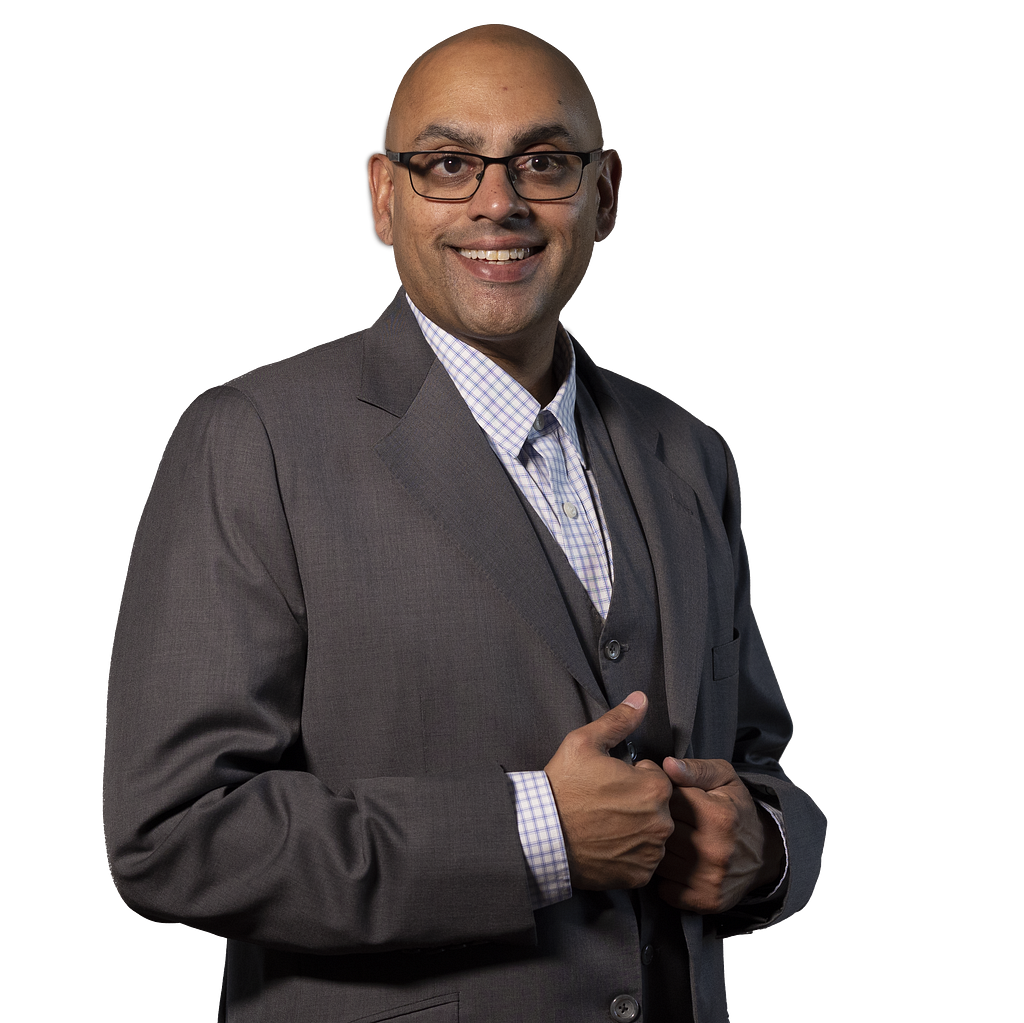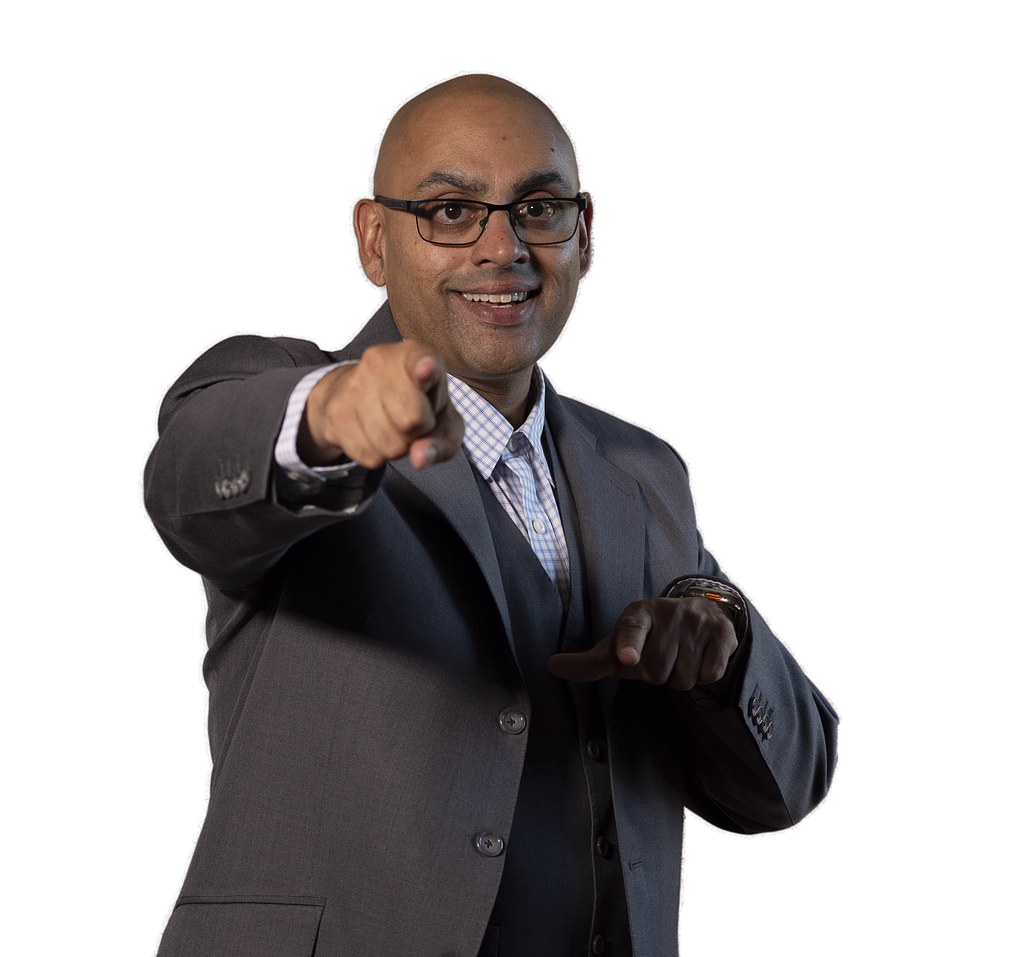Social Impact Heroes: Why & How Dr Aditya Nagrath of Elephant Learning Mathematics Academy Is Helping To Change Our World

Embrace what you are doing. When I was coming up in courses through DU, I was playing around with some functions and one of the professors heard me saying, “Let’s just put it in here and see what happens.” He interjected and said, “The name of the major is computer science, not computer guesswork.” From there, I became more intentional with my thought processes in mathematics as well as all areas of my life. Philosophically, we can apply that with whatever it is we are doing in life.
As part of my series about “individuals and organizations making an important social impact”, I had the pleasure of interviewing Aditya Nagrath.
Dr. Aditya Nagrath PhD is the creator and cofounder of the Elephant Learning Mathematics Academy. Dr. Nagrath is a mathematician and software engineer turned entrepreneur. On average, children in his system learn 1.5 years of mathematics over the course of 10 weeks using his system just 30 minutes per week.
Thank you so much for joining us in this interview series! Can you tell us a story about what brought you to this specific career path?
In 2016, I was approached by one of my former graduate advisors at the University of Denver with a potential grant opportunity from the National Science Foundation to turn research into functional business. What I learned that day from my professor was that 4 out of 5 students start kindergarten unprepared for the kindergarten curriculum. Preschool mathematics scores were a better predictor of 3rd grade reading scores than preschool reading, and math scores predicted whether students drop out of high school.
We had hundreds of years of research all pointing to the idea that there is a language gap. Young children’s main focus is learning to speak. Kindergarten’s prerequisite is that a student count to 10, meaning that a teacher may be able to ask for ten items, and the student is able to slide over ten items. For most parents, if a student says the numbers through 10 aloud, they feel as though they can count to ten. In more affluent neighborhoods, preschools ensure that students meet the standards of kindergarten. It also turns out if you break the data down by income, students tend to leave the school system at the same level that they entered the system.
We were able to envision a system that could help children understand mathematics as a language. By approaching the problem in this fashion, we would not only be able to get students ahead, but also catch students up to be able to participate within the classroom at a rapid pace.
Can you share the most interesting story that happened to you since you began leading your company or organization?
We saw an advertisement on Facebook for an advertising company. After I put my email in, a person called up and said that he had VC funding and would like our help with a product he was developing. They would run Facebook ads for us and in turn give us insights into our customer. Ultimately they did this, but to do it, they were able to scale our audience from 2 million people to about 25 million people. It was extremely valuable to us. The reason this story is so interesting is they ultimately changed their business model completely. I am very grateful to Cary from Tapcast for all his help and for the interesting story.
It has been said that our mistakes can be our greatest teachers. Can you share a story about the funniest mistake you made when you were first starting? Can you tell us what lesson you learned from that?
Because of the statistics, we started with a buy one, give one model. What we quickly learned is that when people received the system for free, they would not use it. Meanwhile, I was meeting with people like the main Montessori franchisee in Colorado, who was thanking us for what we were providing to society. Montessori charges thousands to provide a non-automated form of similar methodologies.
The lesson we learned was that people do not respect things they get for free. The value that we ask for in dollars has to match the value perceived by the person using it. The reciprocity of the transaction is the value in the consumer’s mind.
Can you describe how you or your organization is making a significant social impact?
A recent study of 57,170 students showed that the average gain based on common core standards was 1.67 years over the course of 13 weeks with an average usage just under 40 minutes per week. We have had over 140,000 students complete our placement exam, and have taught over 160,000 years of mathematics.
We have had thousands of parents come back and leave positive testimonials on our Facebook ads. These parents have children from all backgrounds and abilities, including students with dyslexia, dyscalculia, ADHD, ADD, and autism. Many of them say their children now love mathematics due to our system.
Can you tell us a story about a particular individual who was impacted or helped by your cause?
We have helped so many students that it is hard to choose just one. When I started this project, my first son was 3 months from being due. As he has grown, Elephant Learning has been a part of his life. My first goal with Elephant Learning was to build a tool to help me get my child the basics. I knew if I could do that, then my family would be taken care of. With every aspect of the design, my goal was to empower my own child with mathematics through me, and that is why we guarantee that we can help parents empower their children with our coaches.
Are there three things the community/society/politicians can do to help you address the root of the problem you are trying to solve?
We started by advertising to parents because we knew that the education system is a crowded space. Having said that, we have created programs for schools and classrooms to make a larger impact. The system is coupled with teacher training and data analytics that allow teachers to break students in cohorts by understanding so that they are always working with the student with language that the student can understand.
Today’s politics are poisoned by extremism. It is taking the spotlight off of where the most concern lies. Society is way more data-driven now than it was even just 10 years ago, and because of that, we as a society are more mathematically driven. Science, technology, and engineering all rely heavily on advanced mathematical concepts such as algebra, calculus, and differential equations in order to accomplish goals, and people who want to get involved in AI need to have a strong understanding of special types of multidimensional functions and linear algebra. Business majors are now required to be adept in statistical analysis in order to understand the data so that they may make data-driven decisions.
Extremism distracts from problems that are much harder for politicians to solve, such as the education challenges we are now facing. Education is not a sexy topic on the campaign trail, and yet it affects our world’s future more than climate change. The ultimate resolution to the problem is to graduate more, and better versed, engineers and scientists.
At the same time, if we graduate politicians and business people that speak the same language as the scientists and engineers, the impact could be realized at a faster pace. Technology that takes years to come to market, and even longer to regulate, could have some basic structure around legislation on release. Coming to agreement as a society is easier when everyone understands the underlying data and evaluates the degree of truth for themselves.
How do you define “Leadership”? Can you explain what you mean or give an example?
Leadership is a function of one’s ability to invent new opportunities for one’s self and others in order to produce expanded results. It starts and is grounded with a belief in the abilities of those that choose to produce those expanded results.
For example, “Learn 1 Year of Mathematics in 3 Months” happens first because we believed that children could accomplish this goal within the context of language. We then asked “How do we do it?” Investing in action based on truth.
Once a parent has committed to our program, they have also expressed the belief that their student can do it. Now we have a shared context of belief in the student..
The student, as they achieve the result, then also understands that they too can do it. They overcome the fear of not being able to do it by doing it, thereby gaining power over the story that they couldn’t do it. That is what we mean by empowering children with mathematics.

What are your “5 things I wish someone told me when I first started” and why. Please share a story or example for each.
- Embrace what you are doing. When I was coming up in courses through DU, I was playing around with some functions and one of the professors heard me saying, “Let’s just put it in here and see what happens.” He interjected and said, “The name of the major is computer science, not computer guesswork.” From there, I became more intentional with my thought processes in mathematics as well as all areas of my life. Philosophically, we can apply that with whatever it is we are doing in life.
- Own what you own, including your thoughts, energies, and actions. We control the meaning that we add to the experiences of our lives. We get to choose that, along with the energies and actions that we are bringing to our daily lives. Focusing on what we can control stops us from attempting to control what we do not.
- Do not own what you do not own, including other people’s thoughts, energies, and actions. So many times in life, one can get caught up in what other people are thinking and doing. We can start to view these thoughts and actions as functions of our own being.
- Expectations that are not communicated cannot be met. We can honor our word, and we can make agreements and own where the agreements may not have been met. But we can only know what we know, and nothing more.
- When you appreciate what you have, then you may get what you want. Gratitude is a practice that develops feelings of contentment. Finding gratitude in any situation brings out the gift that you can move forward with.
You are a person of enormous influence. If you could inspire a movement that would bring the most amount of good to the most amount of people, what would that be? You never know what your idea can trigger. 🙂
Education is the only path that a human has to freedom. Without it, freedom is unattainable. We could bring this topic back into national attention because what is happening in our education system now is actually quite frightening. It ranges from teacher shortages to pandemic gaps. If we could return rigor back to our education system, we could build a workforce that matches modern needs.
Can you please give us your favorite “Life Lesson Quote”? Can you share how that was relevant to you in your life?
The universe continues to present you with a problem until you solve it. Growth only occurs outside of our comfort zone, and no problem is beyond our reach. We just have to figure out how to use what we have to overcome the problem at hand.
Is there a person in the world, or in the US with whom you would like to have a private breakfast or lunch with, and why? He or she might just see this, especially if we tag them. 🙂
Bill Gates. The Gates foundation’s initiatives on mathematics education and reading match our own. It is challenging for a small organization like ours to get in front of the right people, so thank you for helping us make your readers aware.
How can our readers further follow your work online?
Follow us on Facebook or follow me on LinkedIn.
https://www.facebook.com/ElephantLearningApp/
www.linkedin.com/in/adityanagrath
https://www.linkedin.com/company/elephant-learning/
This was very meaningful, thank you so much. We wish you only continued success on your great work!
Social Impact Heroes: Why & How Dr Aditya Nagrath of Elephant Learning Mathematics Academy Is… was originally published in Authority Magazine on Medium, where people are continuing the conversation by highlighting and responding to this story.
